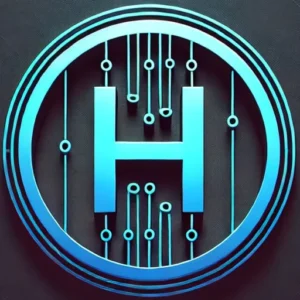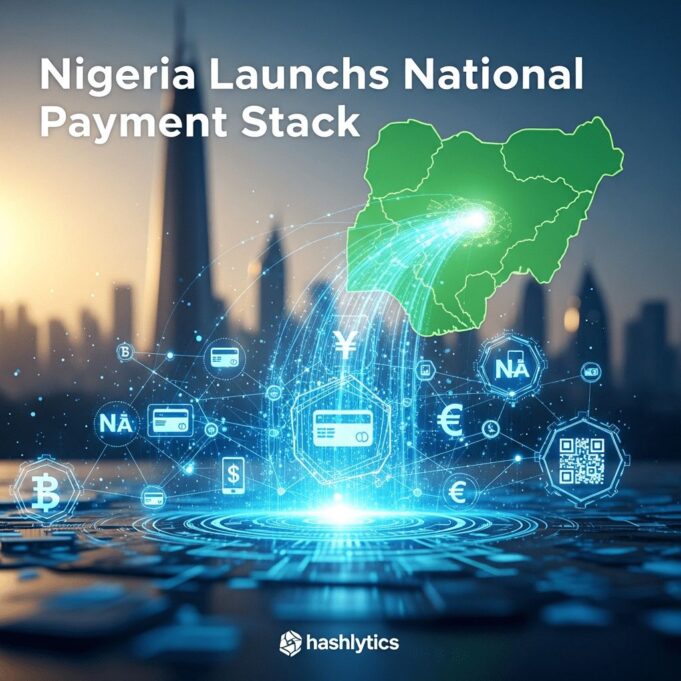-0.96%
-0.80%
+2.34%
-0.08%
-0.58%
+2.57%
Nigeria has recorded its first successful transaction on its National Payment Stack (NPS), marking a significant shift in how the country handles banking, payments, and government financial services. But what does this actually mean for everyday Nigerians?
What Is NIBSS?
Before we talk about the NPS, you need to understand NIBSS—the Nigerian Interbank Settlement System. This is the company that connects the Central Bank of Nigeria (CBN) and all the banks in the country.
When you transfer money from Zenith Bank to Access Bank, or from Access Bank to Fidelity, NIBSS is handling that transaction in the background. They’re the infrastructure that makes interbank transfers possible.
Now, NIBSS has created a new payment platform called the National Payment Stack (NPS). And this is where things get interesting.
What Does the NPS Actually Do?
The National Payment Stack brings together fintechs, government agencies, MDAs (Ministries, Departments, and Agencies), and banks in one unified platform. Here’s what it enables:
Government Financial Services
- Improved social benefits disbursement – Government can send money directly to citizens efficiently
- Tax collection – Easier and more transparent tax payment systems
- Revenue tracking – Real-time visibility into government financial flows
Real-Time Payment Infrastructure
- Built-in fraud detection – Security measures integrated at the platform level
- Domestic transactions – Seamless payments within Nigeria
- Cross-border transactions – Support for international payments
Advanced Financial Features
- Open banking APIs – Allows third-party developers to build financial services
- Digital ID integration – Links your identity to financial transactions
Why This Matters for You
You might be thinking, “Okay, but what does this mean for me?” Here’s the practical impact:
Tax Collection Gets Easier (For the Government)
The government can now collect taxes more efficiently through the platform. This means less friction in tax payments, but also better tracking of who’s paying and who isn’t. If you’re thinking 2026 and beyond, this is the infrastructure that enables that.
Open Banking Is Finally Happening
Nigeria has been trying to implement open banking for years. Now there’s actually infrastructure that can handle it. This means:
- Third-party apps can access your banking data (with permission)
- More innovative financial products
- Proper credit scoring – Lenders can actually assess your creditworthiness based on transaction history
Digital ID Integration
Remember that digital ID initiative the government has been talking about? It’s coming to the NPS platform. This will connect your identity verification to financial transactions, making KYC (Know Your Customer) processes smoother but also giving the government more visibility into financial activities.
Government Disbursements
If the government wants to distribute money—whether it’s subsidies, grants, or social benefits—there’s now a platform to reach everyone directly. No more relying on inefficient manual processes or intermediaries.
Nigerians Abroad
The cross-border transaction support means the government is interested in bringing Nigerians in the diaspora into the domestic financial system. This could make remittances smoother and potentially cheaper.
The First Transaction: Proof It Works
The first transaction was completed between PalmPay and Wema Bank in milliseconds. This isn’t just a test—it’s proof that the system actually works at scale.
The speed matters. Millisecond transactions mean real-time payments, which is crucial for modern digital finance. If you’ve ever waited hours or days for a bank transfer to clear, you understand why this is significant.
What This Means for the Industry
The NPS represents a fundamental shift in Nigeria’s financial infrastructure:
Unified Platform
Instead of fragmented systems, there’s now one national platform connecting banks, fintechs, and government. This reduces friction and enables innovation.
Government Visibility
The government gets unprecedented visibility into financial flows. This is good for revenue collection and fraud prevention, but it also means more oversight of financial activities.
Fintech Integration
Fintechs can now integrate directly with the national payment infrastructure, leveling the playing field with traditional banks and enabling new services.
Foundation for Future Innovation
Open banking APIs and digital ID integration create the building blocks for next-generation financial services—from embedded finance to instant credit decisions.
The Reality Check
While this is exciting, there are practical considerations:
- Privacy concerns – More government visibility into financial transactions
- Implementation timeline – Rolling out nationwide will take time
- Digital divide – Not everyone has the digital literacy or access to benefit immediately
- Security risks – A centralized platform creates a high-value target for cybercriminals
But the infrastructure is now in place. The first transaction proves the concept works. What remains is execution at scale.
What Comes Next
As Nigeria moves into 2026 and beyond, expect to see:
- More fintechs integrating with the NPS
- Government services moving to the platform
- New financial products enabled by open banking
- Improved credit scoring and lending based on transaction data
- Easier cross-border payments for diaspora Nigerians
The next few years in Nigerian banking and payments will be interesting. The infrastructure is ready. Now it’s about adoption, execution, and innovation built on top of this foundation.
Kudos to NIBSS for building this. The hard work of creating national financial infrastructure often goes unnoticed, but it’s what makes modern digital finance possible.

